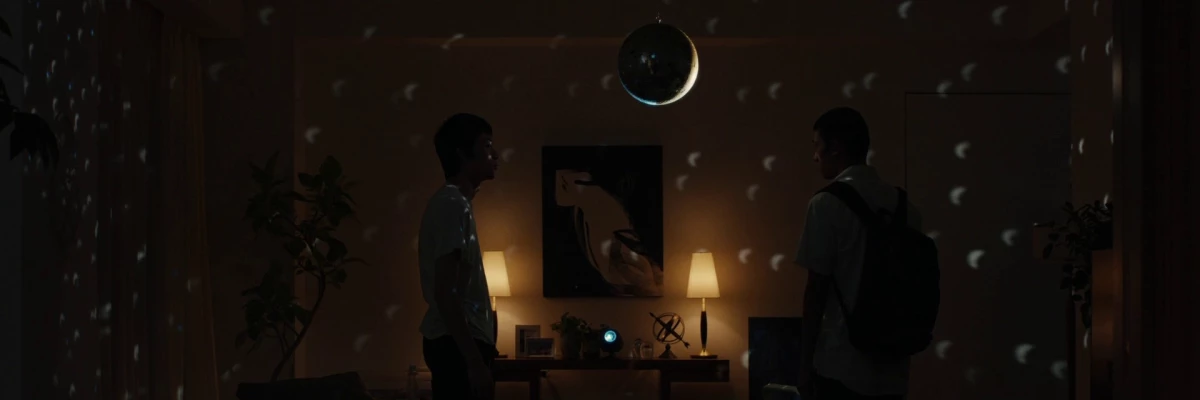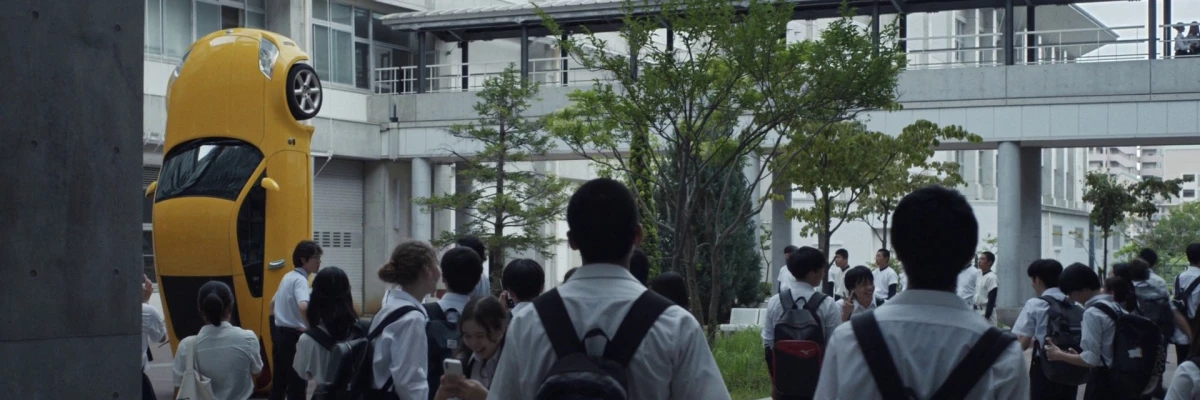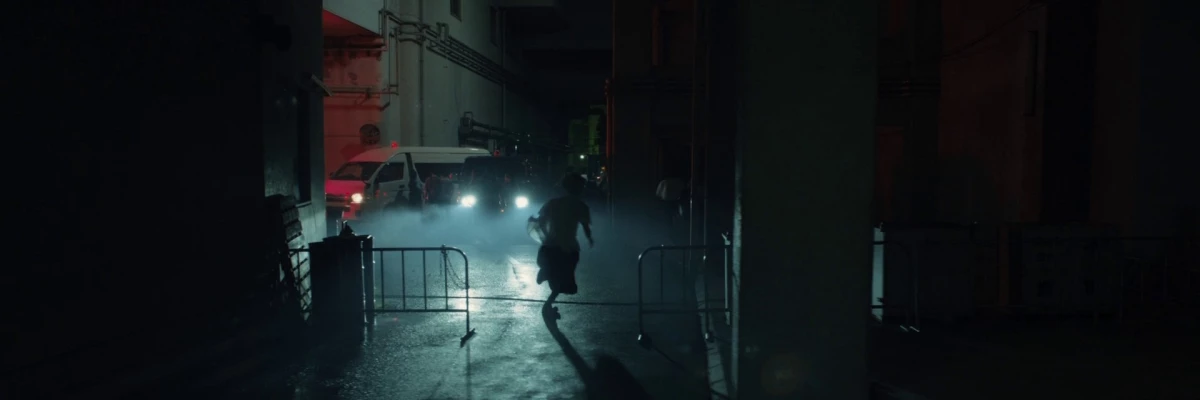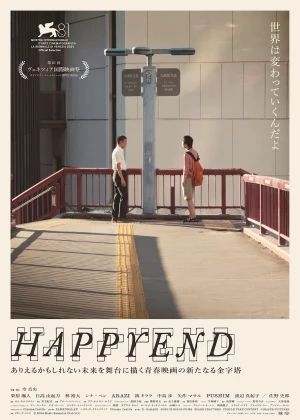Happyend
Despite the drop in international attention, there's one genre in Japanese cinema that has continued to thrive. Japan loves a good drama, and each year there are tons of them finding their way onto the local market. Neo Sora's Happyend has a few tricks up its sleeve to make sure it isn't drowned out by a slew of similar releases. Don't expect a landslide of originality and creativity, but those familiar with Japanese dramas will have no trouble picking up on the various ways Sora set his film apart. That is, if you can get your hands on the film.

Happyend is a surprisingly polished film coming from a first-time director. The fact that Neo Sora is the son of famous music composer Ryuichi Sakamoto no doubt was a factor in his access to know-how and talent, but it's more than just blatant nepotism. Sora grew up in Japan and the US, which gives him a decidedly different perspective than most other Japanese directors, especially the ones making core Japanese dramas. Sore uses this to his advantage, especially when it comes to dealing with the role of gaijin (foreigners) in Happyend.
Going by the plot, this could've been a core genre film. The impending doom of a once-in-a-century earthquake and its political impact is potent enough for some genre fun. Instead, it becomes a backdrop for a coming-of-age drama that deals with familiar themes, like losing friends, transitioning from teen to adult life, the clash of generations, and Japan's tricky relationship with immigrants. It's a precarious balance, but one that comes to define the film and is handled with enough care by Sora.
A once-in-a-century earthquake is predicted to hit Japan. To protect its citizens, the Japanese government has been given extra tools to control the population. When some high school kids pull a prank on their headmaster, the school is inspired by their government, and they install a new surveillance system that tracks the students at all times and deducts points when they don't obey the rules. Not everyone is happy with these changes. The foreign students feel singled out, and they also take inspiration from the outside world to revolt against the school board.

The cinematography is more stylish than you'd expect from a first-time feature film director. It isn't a big departure from what you normally see in Japanese dramas (muted blues/grays and stark framing, you know the drill), but the moody lighting brings extra flair to many of the shots. Sora doesn't go overboard, and he keeps his focus primarily only the characters, but those with an affinity for strong vibes and pretty pictures won't feel betrayed by Happyend. It's a pleasant compromise that I was more than willing to accept.
The music deserves a bit of extra praise. When characters in Japanese films show any form of interest in music, it's usually J-rock or the singer/songwriter kind, so it's cool to see some kid expressing an interest in becoming a proper techno DJ. The music doesn't quite reflect the current techno scene, but for cinema, the bar is low, and the tracks are pretty nice. The rest of the score is solid too, but not quite as noticeable. I wouldn't mind seeing more of these contemporary choices popping up in films, though I'm not holding my breath.
The performances are strong across the board, but what really jumps out about the casting is the choice of more natural actors regarding the non-native Japanese characters. There are no overly pronounced stereotypes here. Everyone feels like a genuine person with their own specific background. It's in these elements that you recognize Sora's experience outside of Japan's borders, which brings a new angle to a drama like this. Without any established names, the cast is still able to shine and bring depth to their characters and inner dynamics, which is a big asset for any drama.

Happyend is a film about kids getting up to no good without crossing over into actual criminal activities. They sneak into clubs, they ditch school, and they pull pranks on their headmaster. The difference is that the government has introduced more stringent rules, and schools are following in their footsteps, so the kids are fighting against different limitations. But the struggles are the same as always, which is a message that deserves praise. Regardless of the situations we find ourselves in, people tend to deal with similar issues that are influenced, but rarely caused, by their environment.
Neo Sora might have had a little help along the way, if only because the people involved were aware of his bloodline, but that doesn't change the fact that Happyend is an incredibly capable film that doesn't just copy what came before, but builds upon the foundations of the Japanese drama and adds some novel components. The execution is flawless, the narrative and thematic twists are fun, and the balance between genre and drama is meticulous. Hopefully, this is just the start for Sora, as I feel there's more potential to unlock. For now, just seek out this film and enjoy what could be the genesis of one of the future staples of Japanese drama.
